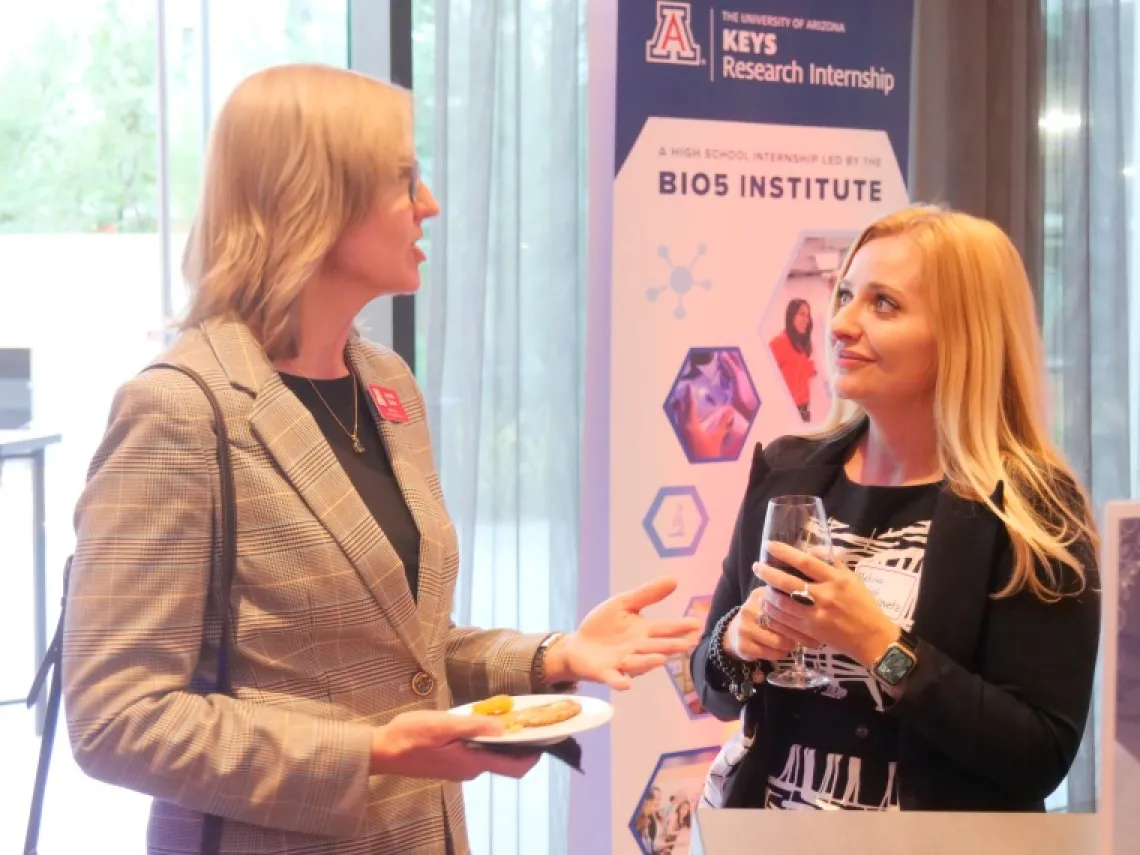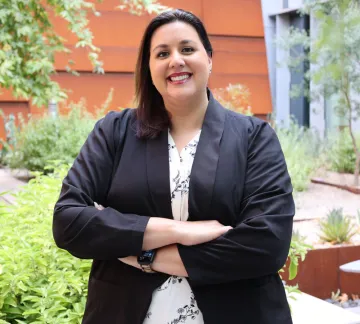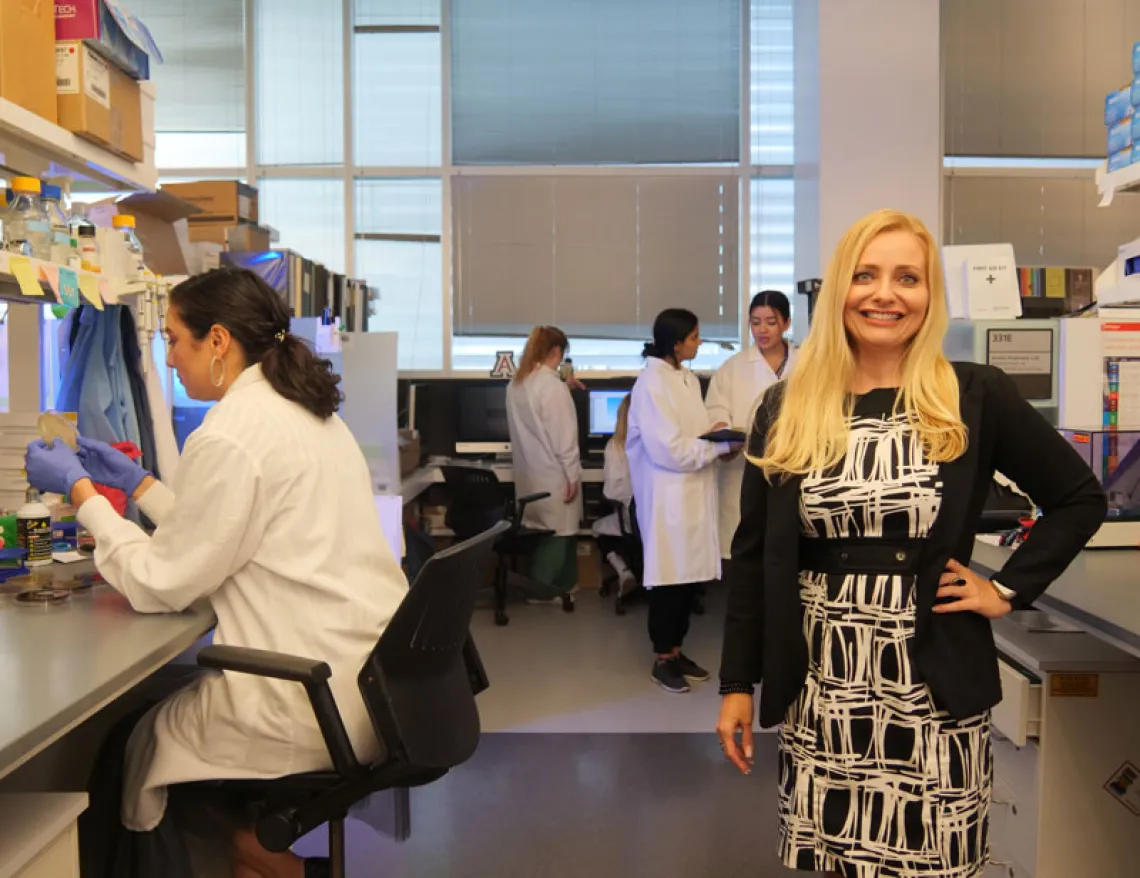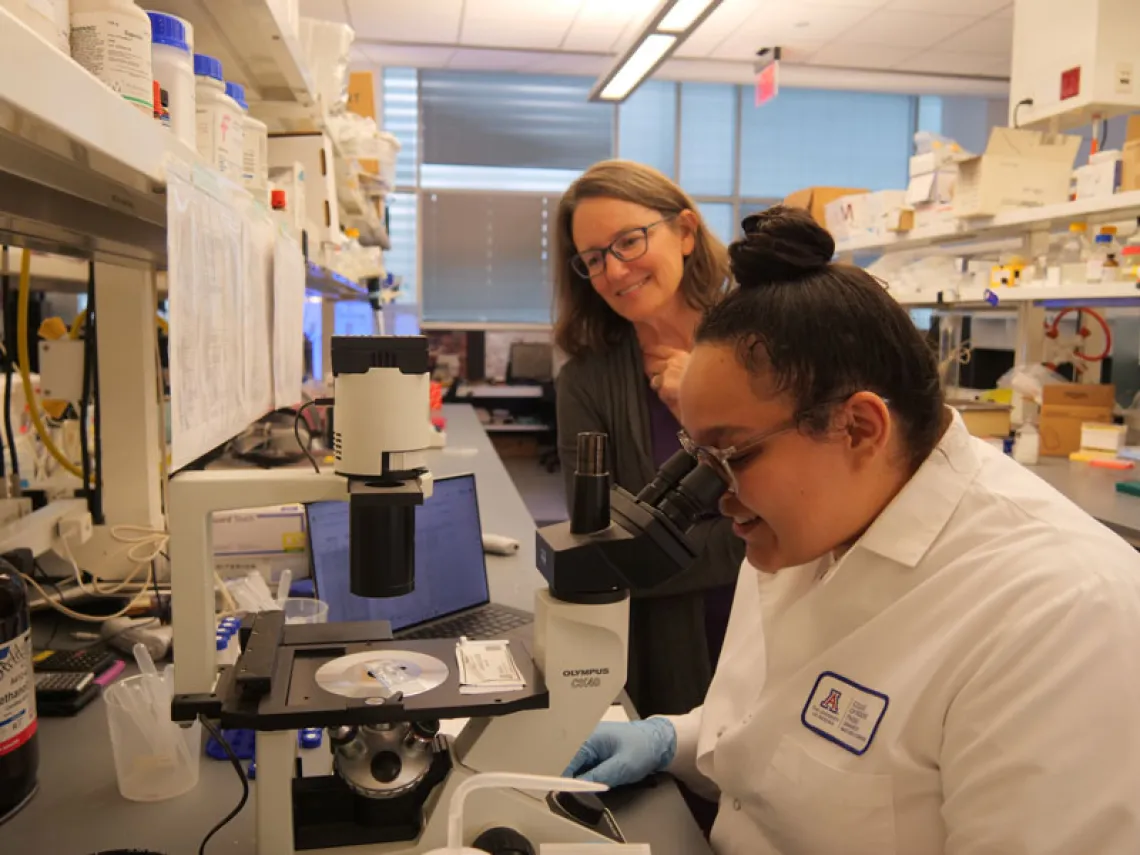BIO5 Institute expands its innovative biosciences research model to Phoenix
With its focus on strengthening translational research, fostering collaborative projects and training the next generation of scientists, the BIO5 Institute aims to leverage its resources to advance interdisciplinary bioscience research and increase indust

The BIO5 Institute at the University of Arizona is set to embark on a groundbreaking journey by officially expanding its footprint to Phoenix. This move marks a significant step in fostering collaborative biosciences research across Arizona and beyond.
“The vision for the BIO5 Institute in Phoenix is to become a catalyzing force for interdisciplinary biosciences research, magnifying connections between Phoenix-based and Tucson-based BIO5 members, utilizing BIO5 resources, and integrating with the larger Arizona biosciences community,” said Jennifer Barton, BIO5 Institute director.
While the BIO5 Institute already has over a dozen faculty members in Phoenix, the formal expansion to Phoenix is not just a geographical milestone, but a testament to the institute's dedication to advancing biosciences research through collaboration, innovation, and education.

Marissa Starks-Banh is a recent hire to the BIO5 Institute, a strategic engagement coordinator in Phoenix.
An open house mixer on November 13 in Phoenix officially launched the expansion by welcoming over 60 members of the UArizona community along with industry professionals. To forge strong relationships with both faculty and the biosciences industry, the BIO5 Institute hired a strategic engagement coordinator, Marissa Starks-Bahn, earlier this year who will be housed at the UArizona Biomedical Sciences Partnership Building.
“Our goal is to grow our BIO5 membership in Phoenix while providing the same level of services a Tucson member may receive. In addition, we want to play a larger role in connecting our existing Phoenix and Tucson BIO5 members with UArizona resources as well as industry expertise,” said Barton. “We will also be able to better support UArizona Phoenix-based initiatives such as the Center for Advanced Molecular and Immunological Therapies (CAMI) and educational program expansion.”
Increasing opportunities for translational research
Strengthening and expanding translational research is a key initiative for the BIO5 Insitute, aligning with the Technology and Research Initiative Fund (TRIF) funding that helped launch the institute over 20 years ago. This special investment in higher education by Arizona voters is intended to expand major efforts in biomedicine and biotechnology that will provide a return on investment to the people of Arizona.
A BIO5 member since 2017, Melissa Herbst-Kralovetz and her lab aim to positively impact women’s health by conducting biomedical research with a high translational value in a clinical setting.

Melissa Herbst-Kralovetz has been a BIO5 member for over six years and directs a program focused on women's health at the University of Arizona College of Medicine – Phoenix
One current project in the Herbst-Kralovetz lab is endometrial cancer, the 4th most common cancer in women, that can only be diagnosed through painful and invasive procedures.
Rising obesity rates and an aging female population, two main risk factors, are causing increasing rates of endometrial cancer, particularly in Arizona. But obtaining funding can be difficult for research that isn’t focused on pregnancy and childbirth.
“Visibility is key for increasing awareness about gaps in women’s health research, particularly aging and menopause, two topics that are understudied,” said Herbst-Kralovetz, a professor in the Departments of Basic Medical Sciences and Obstetrics and Gynecology and director of the Women's Health Microbiome Initiative at the UArizona College of Medicine – Phoenix. "A few years ago, I accompanied Jennifer Barton to the governor’s office to ask for additional funding and support for the BIO5 Institute. That was a great opportunity to discuss the needs in women’s health research here in Arizona and why it needs to be prioritized in terms of funding.”
She hopes the expansion of the BIO5 Institute’s footprint will lead to more opportunities for her to discuss her research with government officials as well as raising awareness of women’s health conditions within the Phoenix community.
Jumpstarting critical research and training the next generation
Another of the BIO5 Institute's key initiatives is providing its faculty members with opportunities for seed grant funding. These smaller grants are crucial support for galvanizing scientific projects that can lead to larger grants and more long-term stability for interdisciplinary research. This strategic approach has proven to be a catalyst for innovation and propelled the institute to the forefront of biosciences research.

Taben Hale has been with the UArizona College of Medicine – Phoenix for over 15 years, but as a more recent member of the BIO5 Institute, she's interested to look into funding focused on jumpstarting collaborative projects.
Taben Hale, a professor in the Department of Basic Medical Sciences at the UArizona College of Medicine – Phoenix, joined the BIO5 Institute in 2023. She studies the causes and consequences of high blood pressure to identify novel treatment strategies to allow people to live longer and healthier lives.
“I’m excited to bridge disciplines and tap more broadly into academic and industry connections as a BIO5 member,” said Hale. “Opportunities to get seed grants are critical for stimulating those collaborative projects and generating the preliminary data that is necessary to then obtain federal funding.”
Furthermore, the BIO5 Institute is committed to shaping the future workforce of scientists through programs like the KEYS Research Internship, the BIO5 Institute’s flagship summer internship program for high school students interested in developing STEM skills under the mentorship of UArizona scientists. Plans to integrate KEYS in Phoenix are already being discussed.
Another way to prepare the future workforce is providing financial support and mentorship for up-and-coming researchers. Now in its fifth year, the BIO5 Postdoctoral Fellowship is an internal funding mechanism for postdoctoral researchers engaged in research projects aligned with the institute’s mission. The fellowship has already supported several outstanding postdoctoral fellows in Phoenix, 2023 fellow Nicole Jimenez and 2022 fellow Erik Blackwood, with hopes to support more.
All these initiatives not only nurture emerging talent but also contribute to the institute's overarching goal of advancing biosciences research in Tucson, Phoenix and beyond.
